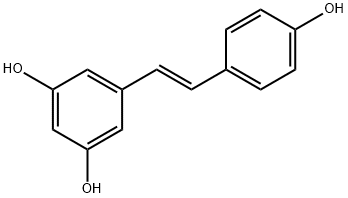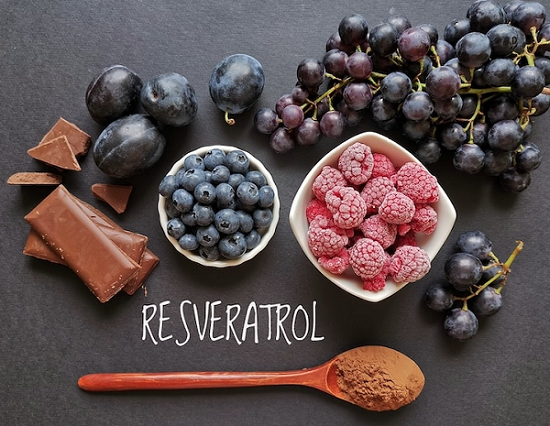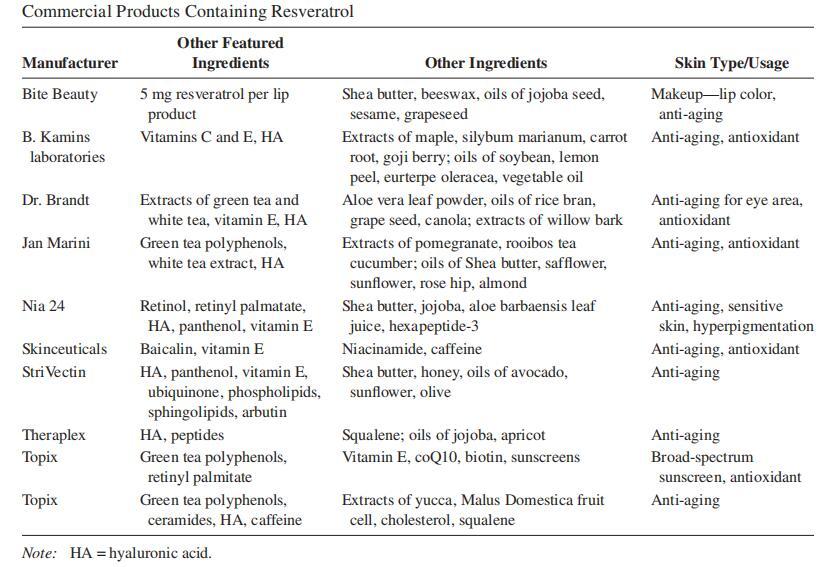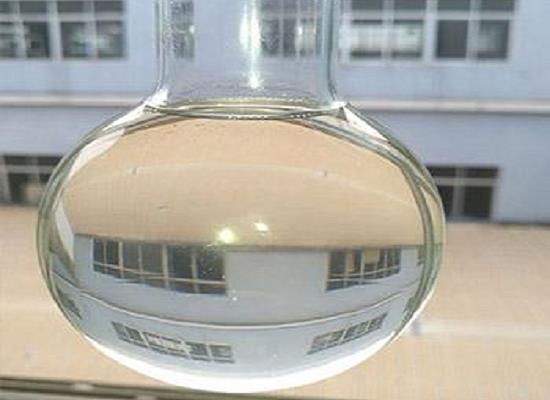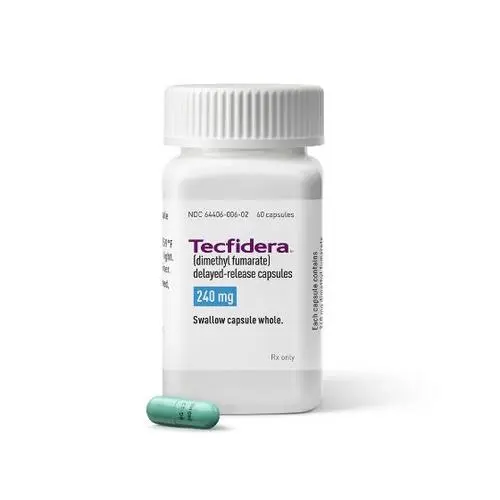Is Resveratrol safety?
Description
Resveratrol is a stilbenoid polyphenol, possessing two phenol rings linked by an ethylene bridge. The chemical structure of resveratrol (trans-3,5,4′-trihydroxystilbene) is identified in two isomeric forms, cis- and trans-resveratrol. Transform is dominant in its prevalence, and different biological activities are attributed to inducing cellular responses such as cell cycle arrest, differentiation, apoptosis, and enhancing cancer cells anti-proliferation. Resveratrol was first isolated from white hellebore (Veratrum grandiflorum O. Loes) roots in 1940, then from Polygonum cuspidatum sources in 1963[1]. Specifically, resveratrol is a well-known biologically active compound synthesized by plants undergoing infectious or ionizing radiation.
Source
Stilbenes, particularly trans-resveratrol and its glucoside are widely reported to be beneficial to health and possess antioxidative, anticarcinogenic, and antitumor properties. Primary dietary sources include grapes, wine, peanuts, and soy. Resveratrol is a phytoalexin found in over 300 edible plants, including grapes, berries, and peanuts[2]. They can also be introduced into the diet through Itadori tea, which has long been used in Japan and China as a traditional herbal remedy for heart disease and strokes.
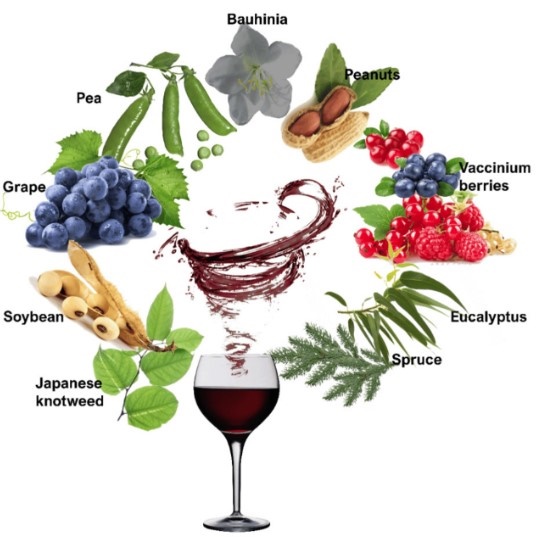
Analysis of grapes, peanuts, and Itadori tea shows that they contain mainly trans-resveratrol glucoside.In contrast, red wines are primarily a source of the aglycones cis- and trans-resveratrol. In contrast, peanuts and grapes contain low levels of stilbenes. Itadori tea and red wine both supply relatively high concentrations of resveratrol. For people who do not consume alcohol, Itadori tea may be a suitable substitute for red wine[3].
Negative effects
One of the fascinating resveratrol aspects for its future development as a promising drug is that it does not appear to have debilitating or toxic side effects. However, some studies have documented that it may behave as a pro-oxidizing agent. Since every antioxidant is a redox agent, it might become a pro-oxidant, accelerating lipid peroxidation and/or inducing DNA damage under particular conditions. In addition, it has already been reported that resveratrol can lead to DNA damage and a reversible or irreversible cell cycle interruption mediated by its pro-oxidant effect. Hence, the pivotal role of dose-dependency and aging in resveratrol-induced responses towards health benefits[1].
Research demonstrates that resveratrol seemed beneficial to the malnourished state of physiological aging. In contrast, when associated with high protein diets in old mice, it may increase atherogenesis-associated risk factors by triggering vascular alterations that could represent an additional risk factor for the cardiovascular system.
Resveratrol does not appear to have side effects at short-term doses (1.0 g). Otherwise, at doses of 2.5 g or more per day, side effects may occur, like nausea, vomiting, diarrhea, and liver dysfunction in patients with non-alcoholic fatty liver disease.
References
[1] Salehi, Bahare , et al. "biomedicines resveratrol: a double-edged sword in health benefits." (2019).
[2] Forouzan, et al. "Resveratrol and liver: A systematic review. "Journal of research in medical sciences :20.8(2015):797-810.
[3] "Plant Foods and Herbal Sources of Resveratrol." (2002).
);You may like
Related articles And Qustion
Lastest Price from Resveratrol manufacturers
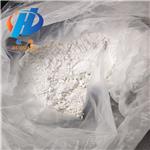
US $10.00/kg2024-04-27
- CAS:
- 501-36-0
- Min. Order:
- 1kg
- Purity:
- 99.8%
- Supply Ability:
- 10000ton
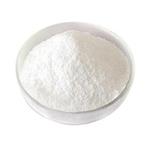
US $98.00-90.00/kg2024-04-27
- CAS:
- 501-36-0
- Min. Order:
- 1kg
- Purity:
- 99%
- Supply Ability:
- 100kg
